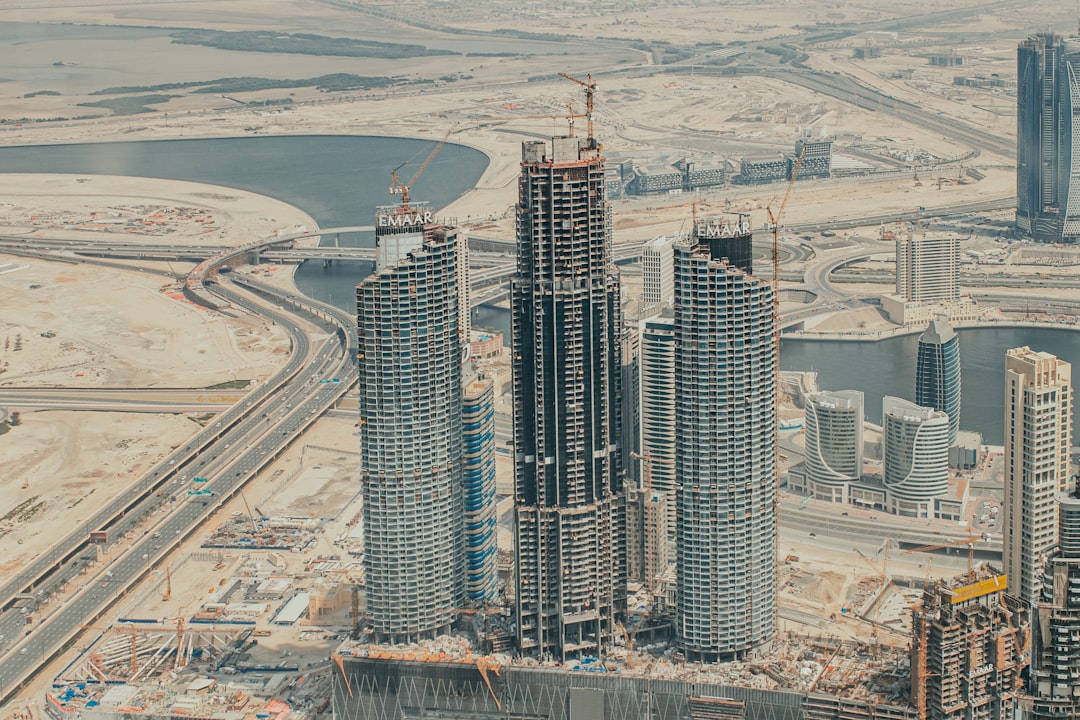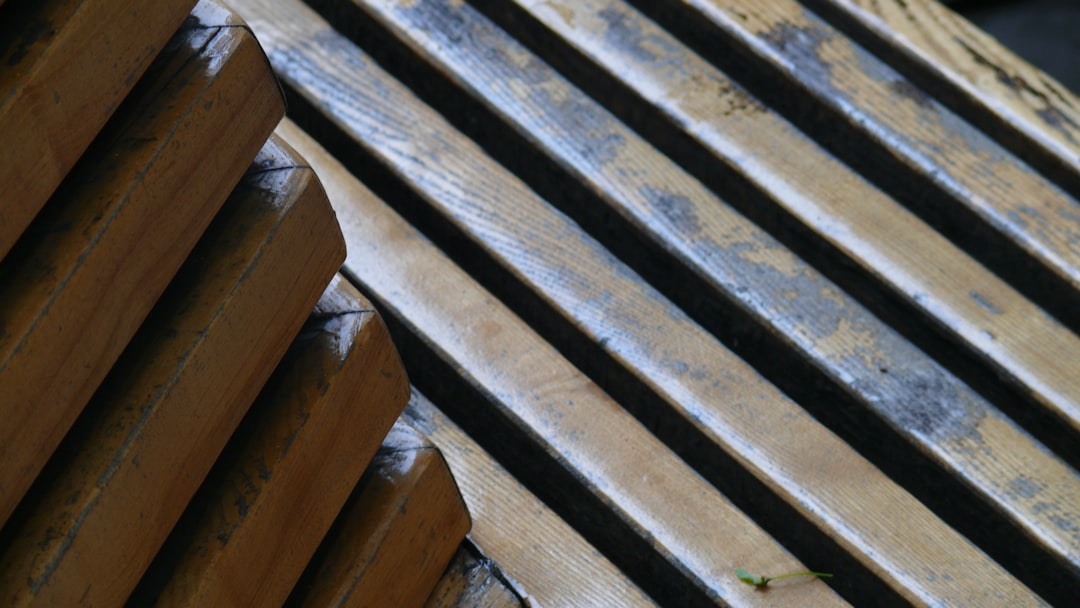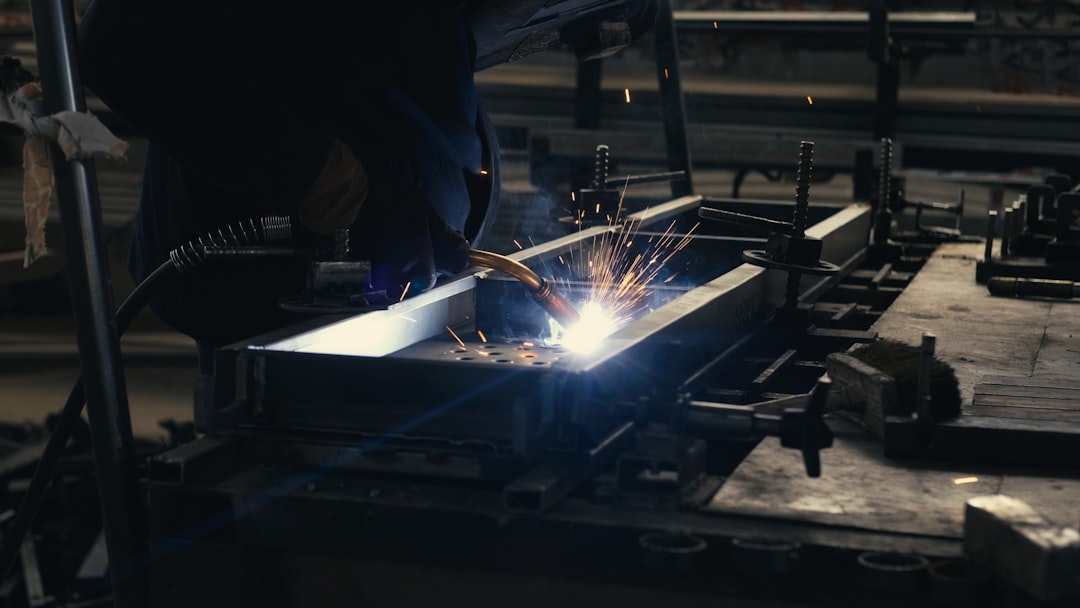Forging the Future: A Deep Dive into the UAE's Structural Steel Market for Construction
Building the Future: The Indispensable Role of Structural Steel in the UAE
The United Arab Emirates (UAE) is synonymous with iconic skylines and groundbreaking architectural marvels. From the soaring Burj Khalifa to the expansive Dubai Mall and the intricate Etihad Rail network, these megastructures share a common backbone: structural carbon steel. As the nation continues its rapid urban and industrial development under initiatives like the Dubai 2040 Urban Master Plan and Abu Dhabi's Economic Vision 2030, the demand for high-quality, reliable steel products has never been higher.
The UAE's structural steel fabrication market is on a significant growth trajectory, projected to expand from approximately USD 2.19 billion in 2025 to over USD 3.04 billion by 2030. This growth isn't just a number; it represents the foundation of the nation's future homes, infrastructure, and industrial capacity. This article delves into the core of the UAE's construction steel sector, exploring the key products, the stringent regulatory landscape that ensures safety, and the exciting shift towards a sustainable, green steel future.

Decoding Structural Steel: Key Products in UAE Construction
Structural steel is not a one-size-fits-all material. Different projects demand specific types of steel with unique properties. In the UAE's diverse construction landscape, several key products form the essential toolkit for engineers and builders.
Reinforcement Bars (Rebars)
Commonly known as rebars, these are the unsung heroes of concrete construction. Concrete is incredibly strong in compression but weak in tension. Steel rebars are embedded within concrete to provide the necessary tensile strength, preventing structures from cracking under load. Given the prevalence of concrete in residential, commercial, and infrastructure projects, high-quality rebars are a fundamental commodity in the UAE market.
Structural Steel Sections
These are the primary components that form the skeleton of a building. Products like H-beams, I-beams, and channels are precision-engineered to bear significant loads, making them indispensable for high-rise buildings, industrial warehouses, bridges, and large-span structures like stadiums and airport terminals. Their high strength-to-weight ratio allows for architectural flexibility and faster construction timelines.
Steel Plates
Steel plates serve a variety of purposes, from forming the floors and roofs of buildings to being used in the fabrication of large girders and other load-bearing structural components. Their versatility and strength make them a crucial element in large-scale and heavy-duty construction.
Galvanized Steel
In a region with high humidity and a saline coastal environment, corrosion is a major concern. Galvanized steel, which is coated with a layer of zinc, offers excellent protection against rust. It is widely used for outdoor structures, roofing, cladding, and in areas prone to moisture, ensuring the longevity and aesthetic integrity of buildings.
The Regulatory Framework: Ensuring Quality and Safety
The UAE government has established a robust regulatory framework to ensure that every piece of steel used in construction meets uncompromising safety and quality standards. This is not just about compliance; it's about safeguarding lives and the nation's reputation for engineering excellence.
The Ministry of Industry and Advanced Technology (MoIAT)
The MoIAT is at the forefront of regulating the steel market. Through the Emirates Authority for Standardization and Metrology (ESMA), it implements the Emirates Conformity Assessment Scheme (ECAS). ECAS is a mandatory certification for many products, including steel rebars, requiring manufacturers and importers to prove their products meet approved standards. This system ensures a level playing field and protects the market from substandard materials.
Dubai Municipality and DCL Certification
At the emirate level, the Dubai Municipality plays a critical role through its Dubai Central Laboratory (DCL). DCL certification is a mandatory requirement for most construction materials used in Dubai's burgeoning construction sector. This certification provides an additional layer of assurance that steel products meet specific local and international performance and composition standards, making it a non-negotiable checkpoint for contractors.
Harmonization with International Standards
The UAE's quality control framework is built upon globally recognized standards. This ensures that local practices are aligned with international best practices. The most commonly adopted standards include:
- ASTM (American Society for Testing and Materials): Standards like ASTM A36 for structural steel and ASTM A615 for rebars are widely used.
- BS/EN (British and European Standards): Standards such as BS 4449 for reinforcing steel are fundamental, especially for projects with European design specifications.
- ISO (International Organization for Standardization): Certifications like ISO 9001 demonstrate a manufacturer's commitment to quality management systems.

The "Make it in the Emirates" Initiative: A Catalyst for Local Industry
Launched to bolster the UAE's industrial sector, the "Make it in the Emirates" initiative has been a significant driver for local steel manufacturing. By promoting locally produced goods, the government encourages developers and contractors to source their steel from national producers like Emirates Steel Arkan (EMSTEEL). This strategy not only strengthens the local economy and creates jobs but also enhances supply chain resilience, reduces reliance on imports, and gives local manufacturers a competitive edge.
The Rise of Sustainable Construction and Green Steel
In line with the UAE's Net Zero by 2050 strategic initiative, the construction industry is undergoing a green transformation. Steel production is traditionally carbon-intensive, but the sector is making significant strides toward sustainability.
A Shift to Greener Production
UAE steel producers are increasingly adopting Electric Arc Furnace (EAF) technology. Unlike traditional blast furnaces, EAFs primarily use recycled steel scrap, dramatically reducing carbon emissions and promoting a circular economy. This practice is crucial for minimizing the environmental footprint of new constructions.
The Dawn of Green Hydrogen Steel
A pioneering development in the UAE is the production of "green steel" using green hydrogen. In a landmark collaboration, EMSTEEL is partnering with clean energy leaders like Masdar to produce steel with a significantly lower carbon footprint. This hydrogen-based steel is already being used in projects like Abu Dhabi's first net-zero carbon mosque, setting a new global standard for sustainable construction.
Market Dynamics: Growth, Trends, and Outlook
The UAE steel market is poised for sustained growth, driven by a combination of factors:
- Mega-Projects: Continued investment in large-scale infrastructure, transportation, and tourism projects fuels high demand for structural steel.
- Economic Diversification: The non-oil economy is thriving, leading to more construction in the commercial, residential, and industrial sectors.
- Technological Adoption: Innovations in fabrication, such as modular construction and automation, are improving efficiency and speed.
The market size is projected to exhibit a compound annual growth rate (CAGR) of around 3-5% over the next five years, reflecting the robust health of the construction and industrial sectors.
| Market Indicator | 2024/2025 Value (Approx.) | Projected Growth (CAGR 2025-2030) |
|---|---|---|
| Overall Steel Market | USD 4.7 Billion | ~3.2% |
| Structural Steel Market | USD 444 Million | ~4.7% |
| Steel Fabrication Market | USD 2.19 Billion | ~6.8% |
Challenges and Opportunities in the Steel Sector
While the outlook is positive, the market faces challenges such as fluctuating global raw material costs and competition from international imports. However, these challenges also create opportunities. Government policies aimed at preventing the dumping of cheap foreign steel help protect local manufacturers. Furthermore, the push for sustainability provides a unique opportunity for UAE-based companies to become world leaders in green steel technology and exports.

The Future is Forged in Steel
Structural steel is more than just a material; it is the enabler of the UAE's vision. From creating resilient infrastructure that can withstand harsh environmental conditions to building sustainable cities for future generations, its role is pivotal. Strict government regulations and quality standards ensure that the foundation of the nation's growth is safe and durable, while initiatives like "Make it in the Emirates" and the drive for green steel position the UAE as a globally competitive and environmentally responsible industrial leader. For developers, engineers, and investors, understanding the dynamics of the steel market is key to successfully contributing to and benefiting from the nation's extraordinary journey of growth.


